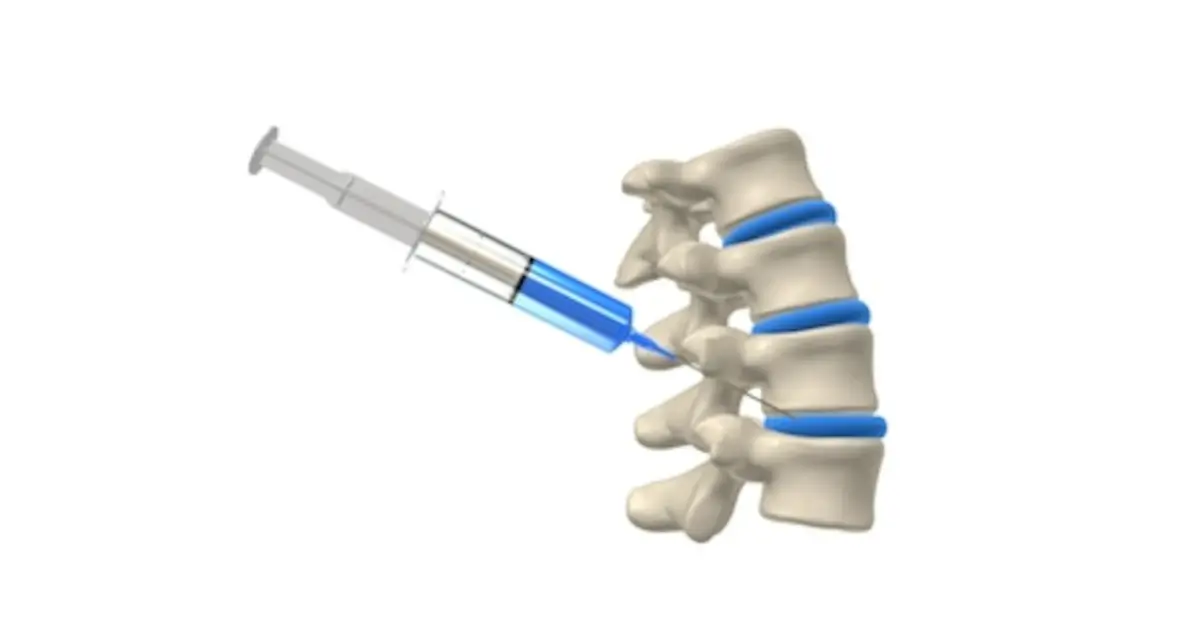Epidural injections, considered intermediate treatments, can result in relief when other therapy measures have not provided a solution for herniated discs.
A herniated disc, also known as a slipped disc or ruptured disc, often irritates nearby nerves, which can result in pain, numbness or weakness in an arm or leg. Inflammation in the surrounding area, caused by the compression of the nerve root, is the cause of pain going down one’s leg. This is called radiculopathy, or sciatica. Sciatica is often a burning, searing pain that is extremely disabling for patients.
The area surrounding the spinal nerves is the epidural space. The purpose of injecting anti-inflammatory medicine into the epidural space is to stop or at least improve the nerve inflammation, and thus, the source of pain.
There are two types of epidural injections currently in use. The first, an intralaminar epidural injection, involves steroid medication being placed just under the bone in back of the spine. There is also the transforaminal epidural steroid injection (TESI), in which the needle is placed into a more specific area where the nerve root is actually being pinched as it exits the spine.
Epidural steroid injections have been available for many years, but in a large-scale review published in the journal Pain Medicine and featured in a National Institutes of Health (NIH) review, the significant benefits of such injections for the treatment of herniated discs were confirmed.
The review found that epidural steroid injections were effective for each of the following:
- reducing pain
- restoring function
- reducing the need for other health care
- avoiding surgery
The large-scale review was taken from material in 39 publications that published multiple studies involving hundreds of patients who were successfully treated with epidural steroid injections for disc-herniation related pain.
Epidural injections are an excellent treatment to try and avoid surgery with a low-risk profile. This is especially true for less severe disc herniations. Dr. Steven Horowitz is expert in providing these injections, and will individually assess each patient. In addition, he will counsel patients on how to return to normal activities following these injections.

